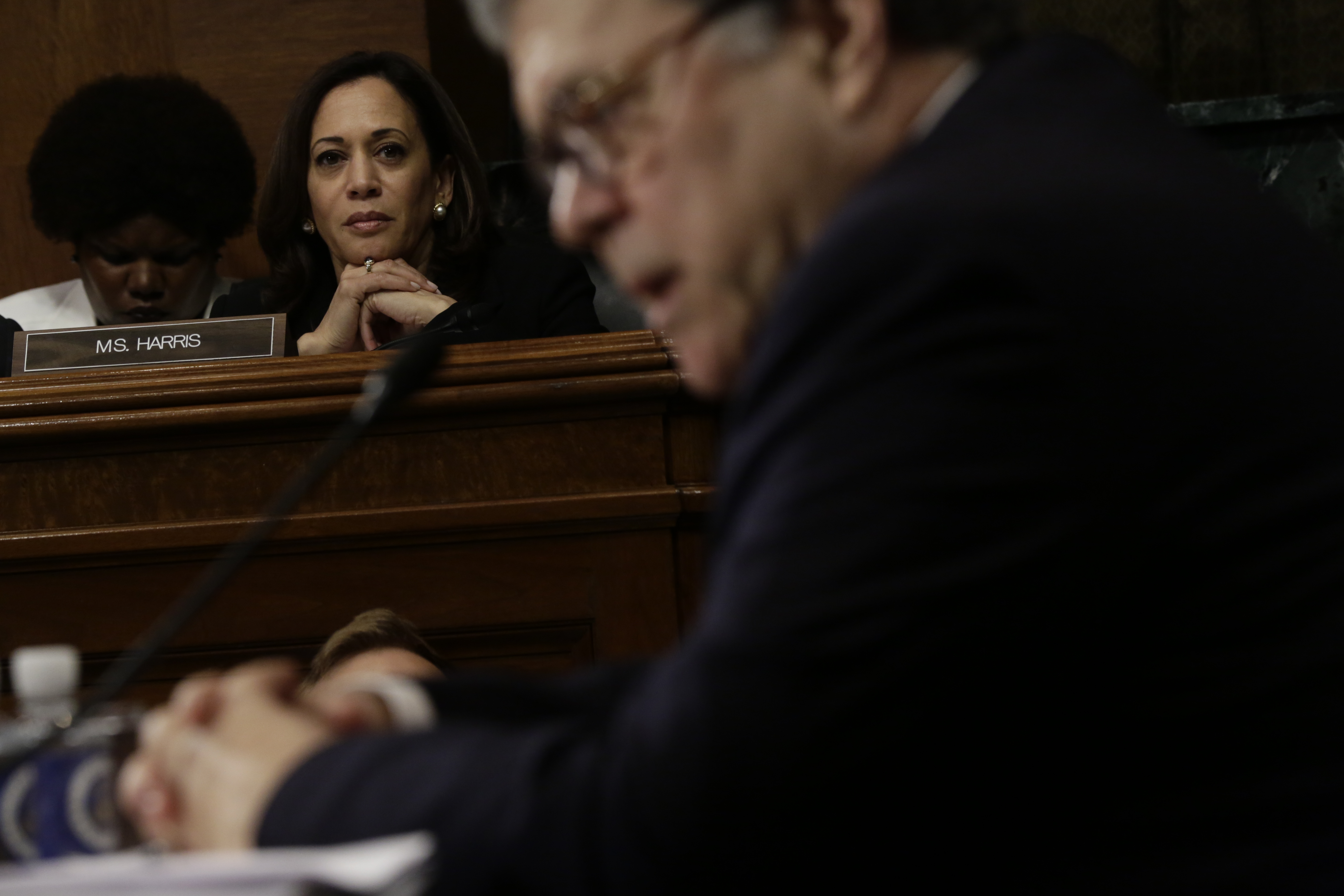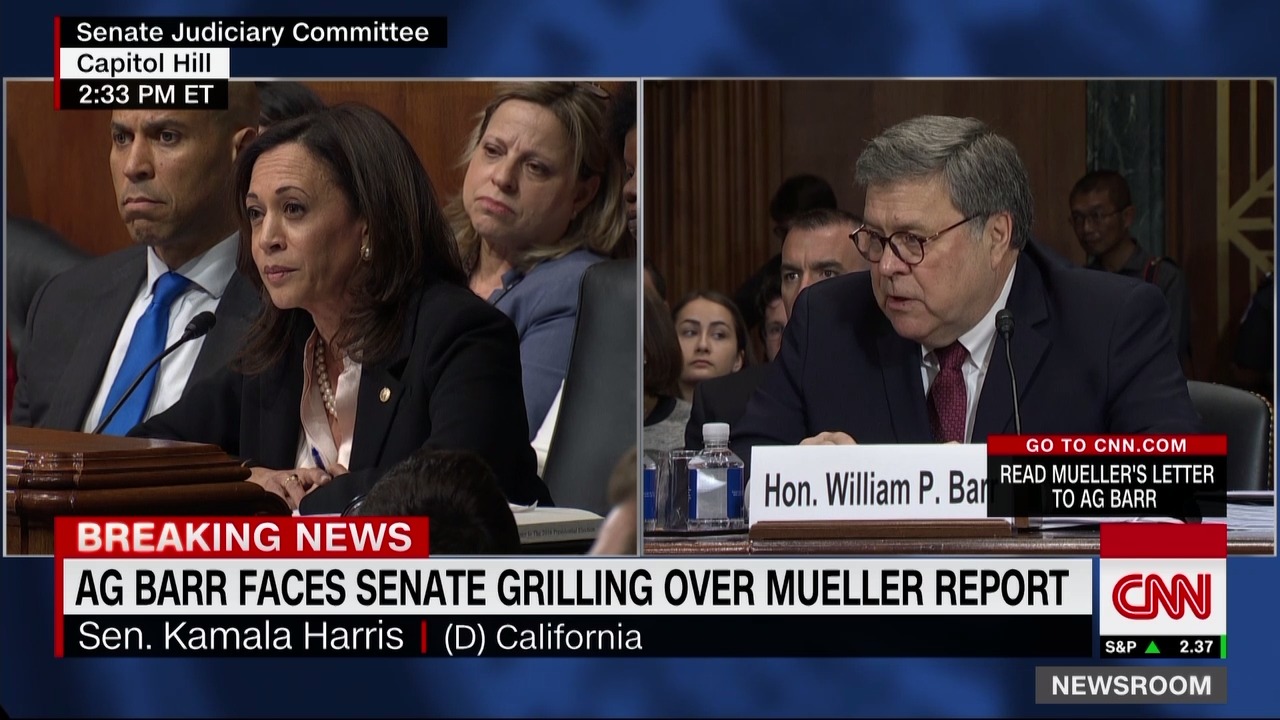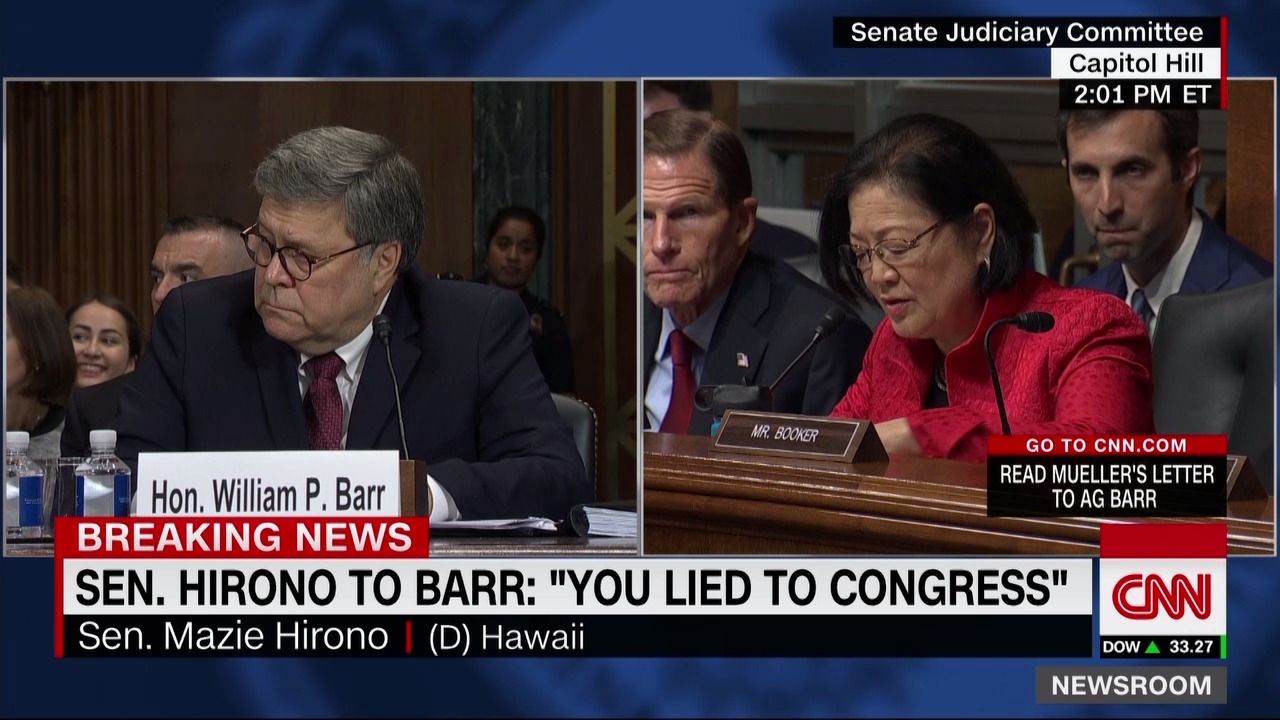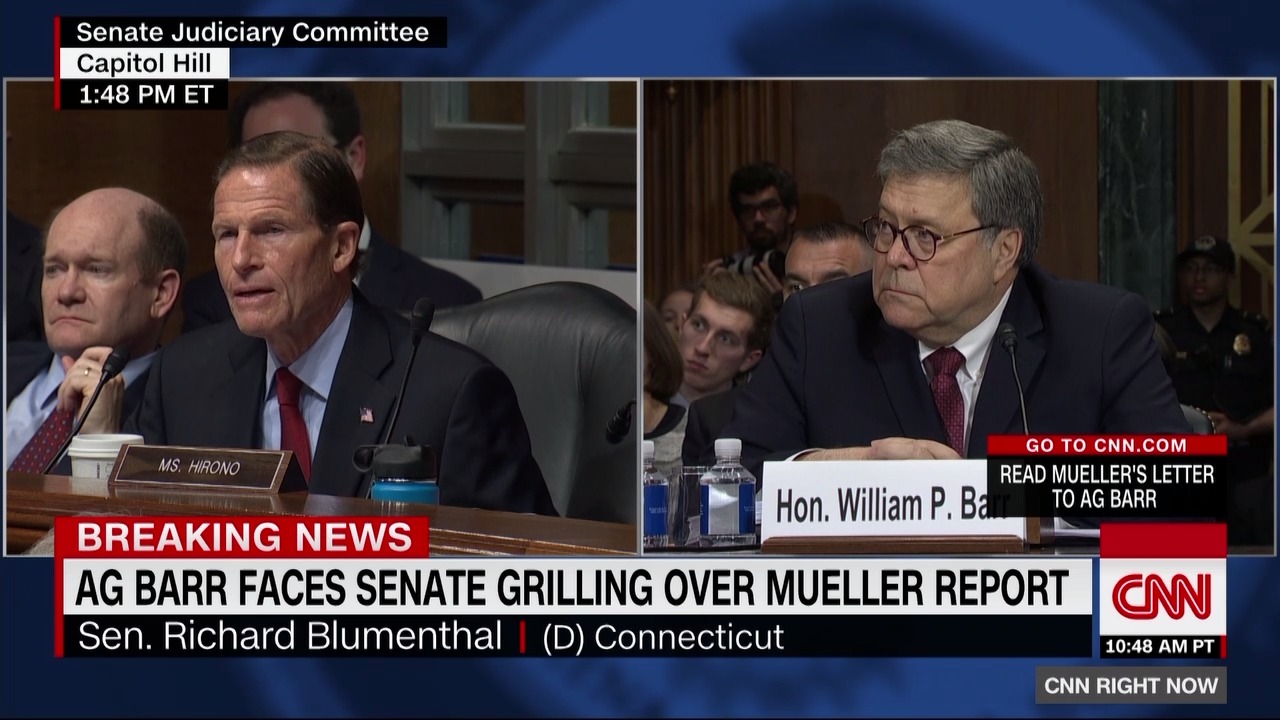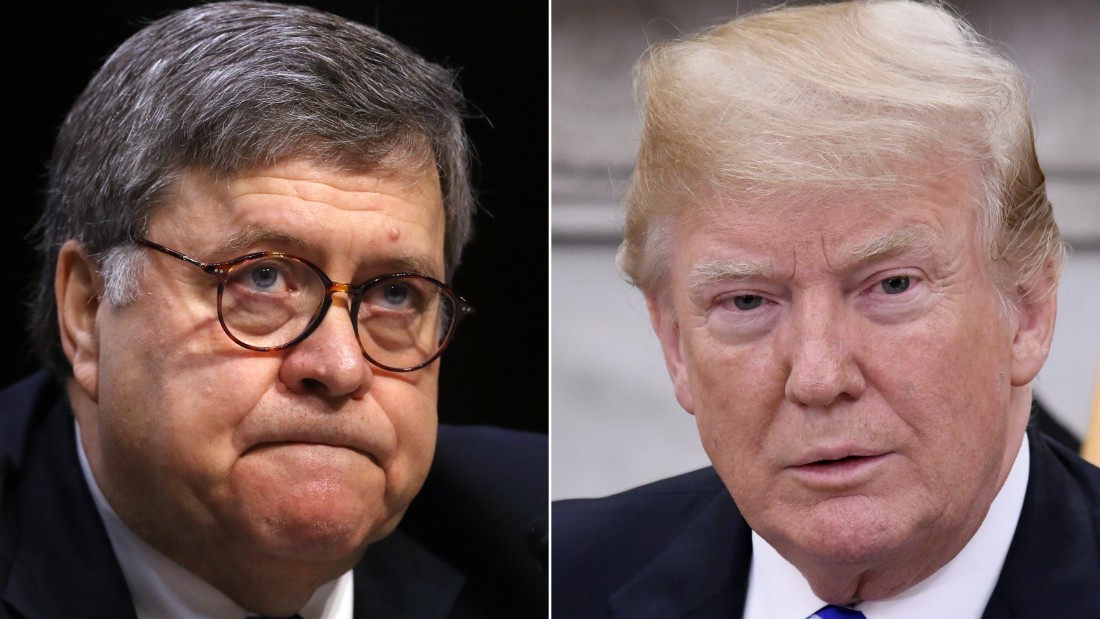Sen. Kamala Harris, a Democratic presidential candidate, accused Attorney General William Barr of failing to look at evidence before making a decision on obstruction of justice.
Harris grilled Barr on statements he made in his March 24 summary, saying he and Deputy Attorney General Rod Rosenstein had looked at the evidence in special counsel Robert Mueller's report before reaching their decision on obstruction of justice. In his letter, Barr said he found the evidence was not sufficient to establish that the President committed obstruction of justice.
But Harris questioned whether Barr had personally reviewed the special counsel's "great deal of evidence."
She then asked, "My question is in reaching your conclusion, did you personally review all of the underlying evidence?"
Barr responded, "No," adding that he "accepted the statements in the report as the factual record."
Here's a portion of Harris' questioning:
Harris: "As the attorney general of the United States, you run the United States Department of Justice. If in any US attorney's office around the country, the head of that office, when being asked to make a critical decision about, in this case, the person who holds the highest office in the land, and whether or not that person committed a crime, would you accept them recommending a charging decision to you if they had not reviewed the evidence?"
Barr: "Well, that’s a question for Bob Mueller. He’s the US attorney. He’s the one who presents the report."
Harris: "But it was you who made the charging decision, sir."
Barr: "What --"
Harris: "You made the decision not to charge the President."
Barr: "No -- in the [sic] memo, and in the declination memo --"
Harris: "You said it was your baby, what did you mean by that?"
Barr: "It was my baby to decide whether or not to disclose it to the public."
Harris: "And whose decision was it -- who had the power to make the decision about whether or not the evidence was sufficient to make a determination of whether there had been an obstruction of justice?"
Barr: "Prosecution memos go up to the supervisor, in this case, it was, you know, the attorney general and the deputy attorney general, who decide on the final decision. And that is based on the memo as presented by the US attorney's office"
Harris: "I think you’ve made it clear that you have not looked at the evidence. We can move on. I think you’ve made it clear sir that you’ve not looked at the evidence, and we can move on."
